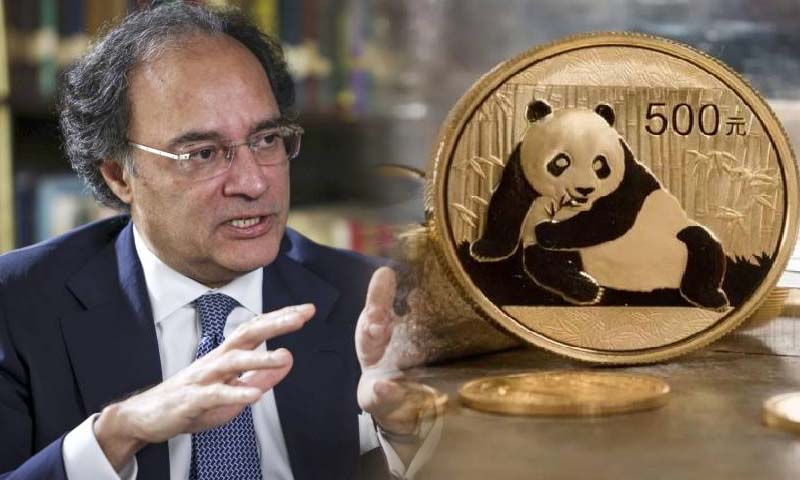- AFP
- 3 Hours ago

$300 million panda bonds on Finance Minister’s cards for 2024
-

- Web Desk
- Mar 24, 2024

ISLAMABAD: In a bid to strengthen its reserves, Pakistan is set to tap into the Chinese market by issuing Panda Bonds worth up to $300 million for the first time this year, as per a report by Bloomberg.
Finance Minister Muhammad Aurangzeb revealed this plan in an interview, highlighting the potential benefits of diversifying funding sources and accessing a new investor base.
World Bank approves $149.7 million for Pakistan’s digital economy
According to Aurangzeb, selling yuan-denominated bonds will enable Pakistan to broaden its funding avenues and attract investors from China, which boasts the world’s second-largest and deepest bond market. He expressed regret that this option had not been explored earlier, stating, “It’s something we should have looked at quite frankly some time back.”
The initial Panda bond sale is anticipated to range between $250 million and $300 million, with potential for further issuances in the future. These bonds, denominated in yuan, are typically offered in China by offshore entities, including governments, multilateral agencies, and corporations.
This move follows Prime Minister Shehbaz Sharif’s directive to the Ministry of Finance to explore the possibility of Panda Bonds to bolster dwindling foreign exchange reserves. Pakistan’s economy faces multiple challenges, including declining reserves, high inflation, and rising interest rates, which have dampened growth prospects.
Saudi Fund pledges continued support for Pakistan’s development goals
Aurangzeb reassured that the government’s cash reserves are robust enough to meet debt obligations on time, minimising pressure on the currency. He expressed confidence in the stability of the Pakistani rupee, foreseeing it to remain range-bound amidst current economic conditions. However, he acknowledged the uncertainty posed by fluctuating oil prices, particularly in light of recent geopolitical tensions.
Amidst these economic challenges, negotiations with the International Monetary Fund (IMF) remain a priority for Pakistan. Despite reaching a staff-level agreement on the final review of its Stand-By Arrangement (SBA), discussions regarding a new bailout program are expected to commence during the IMF’s annual spring meetings, given Pakistan’s continued need for financial assistance beyond the existing arrangement set to expire in April.




